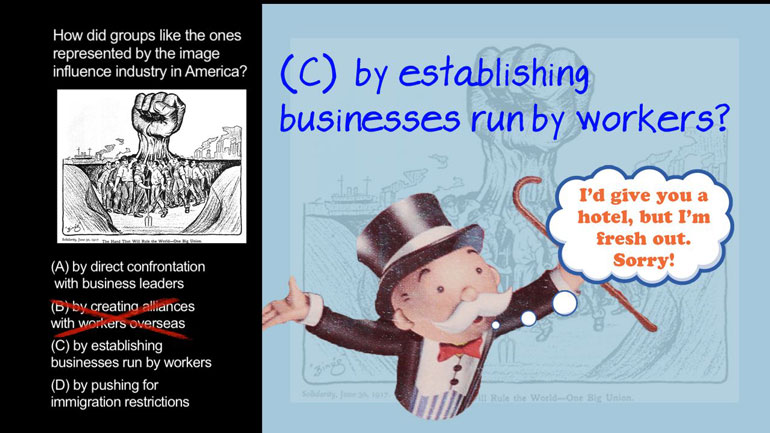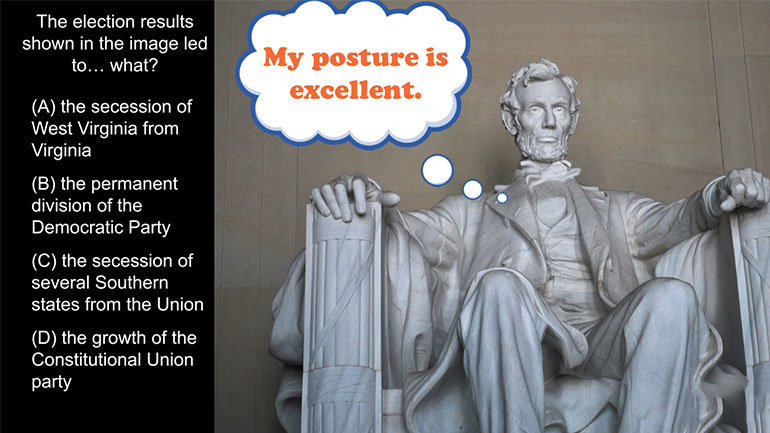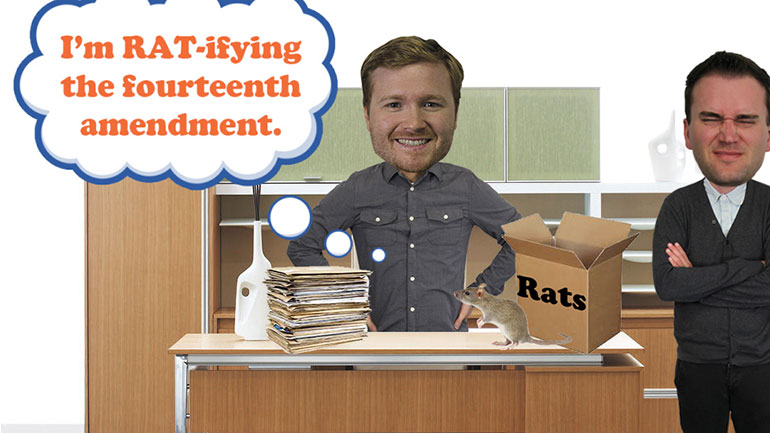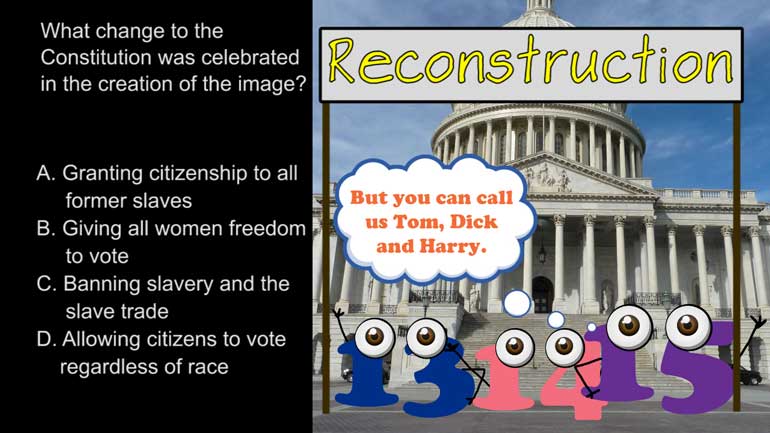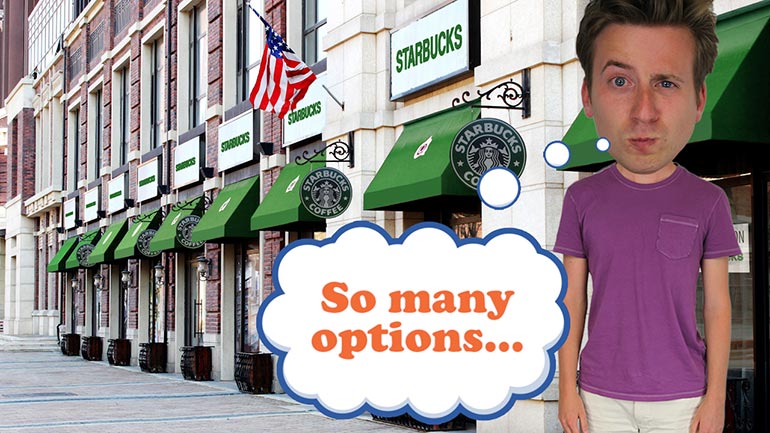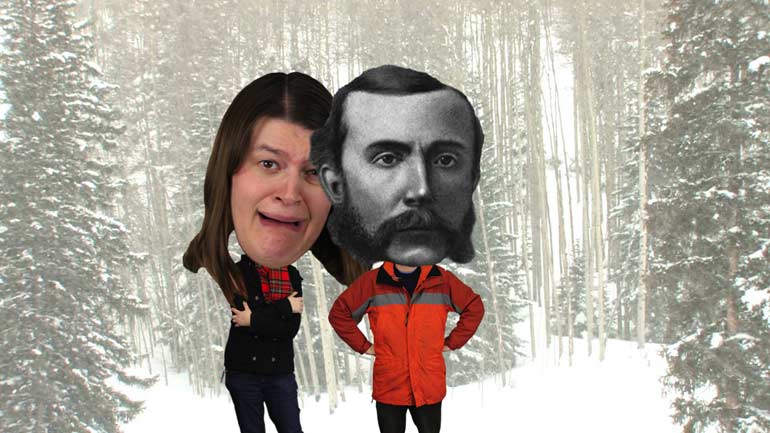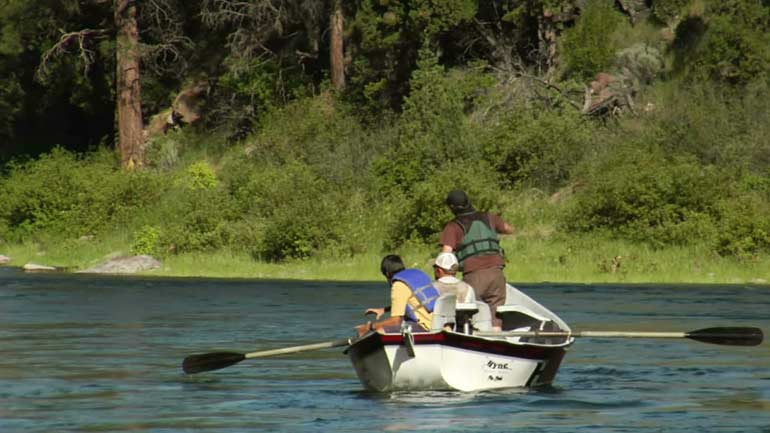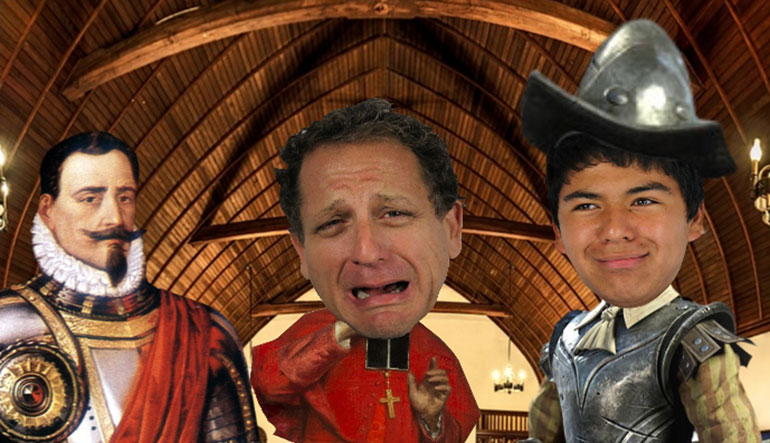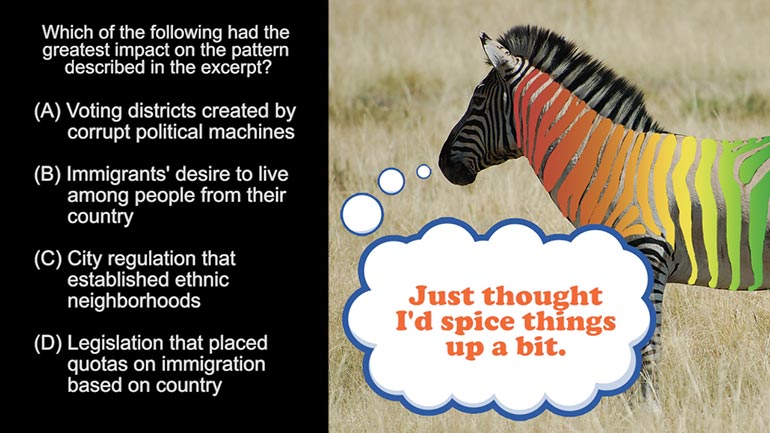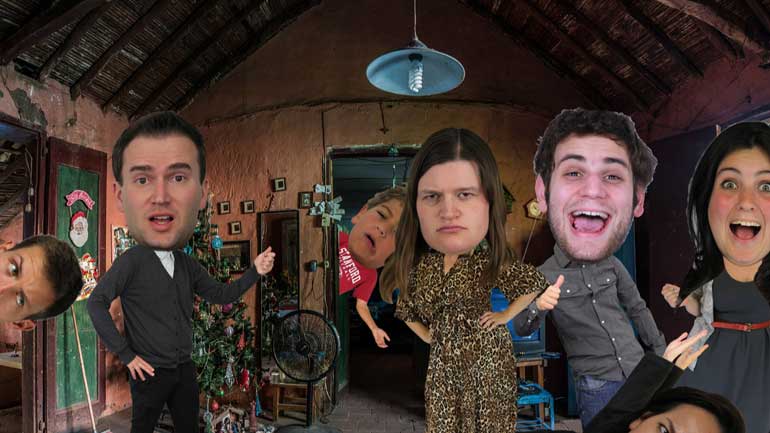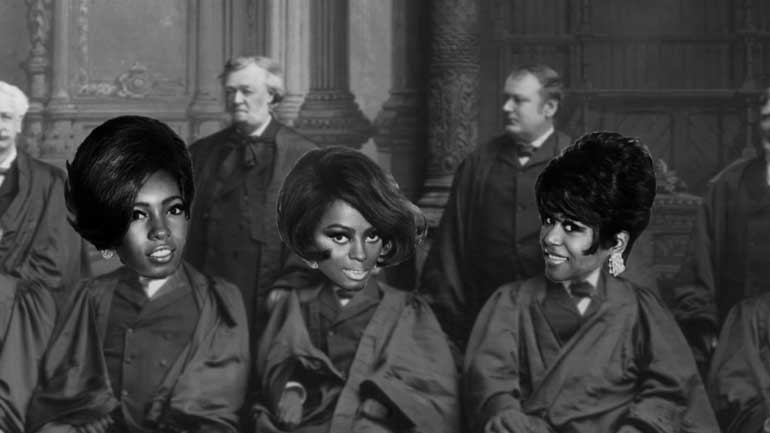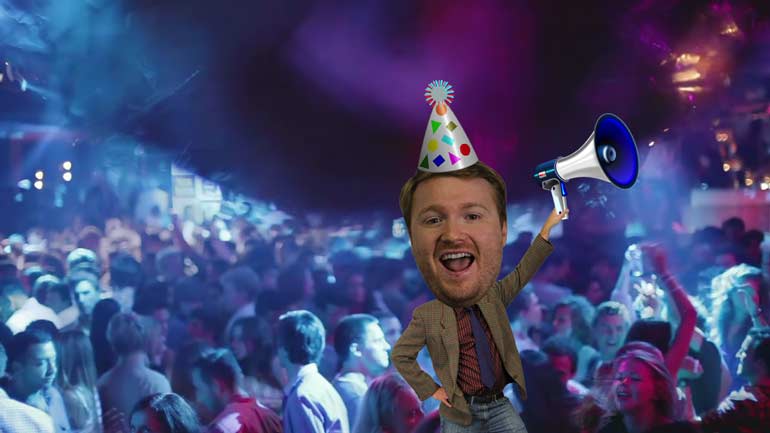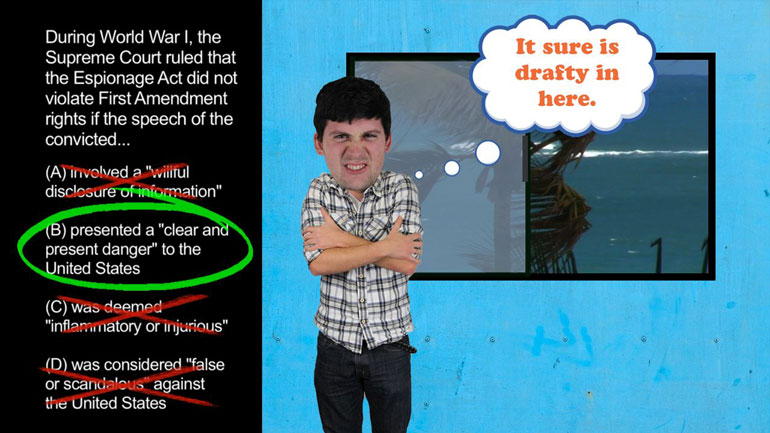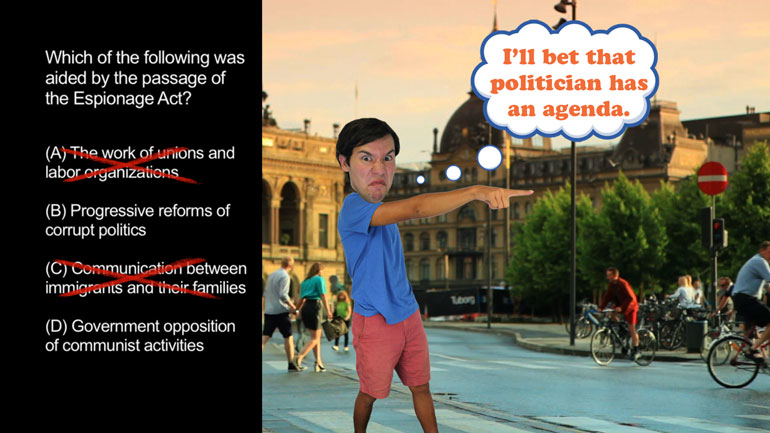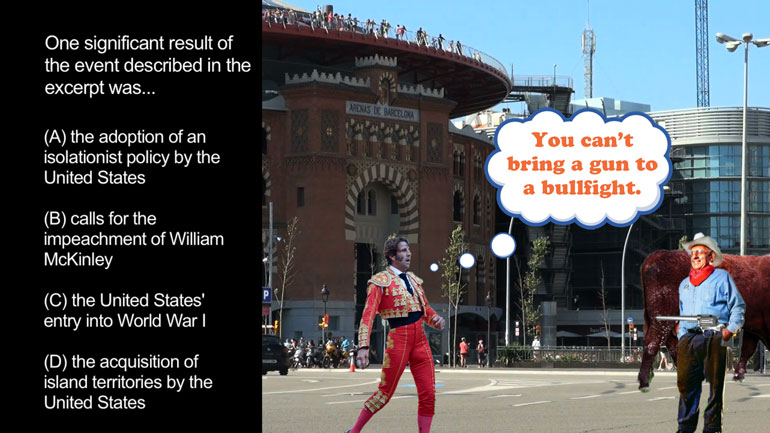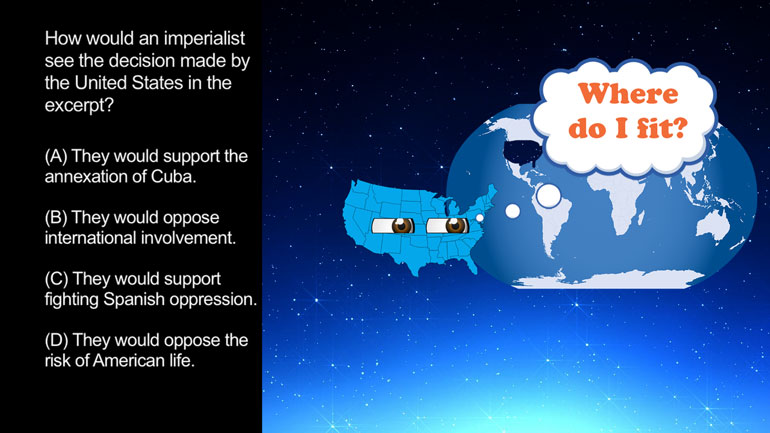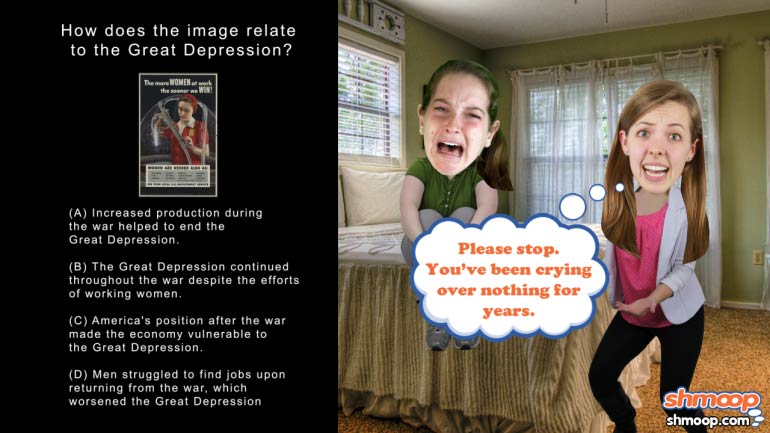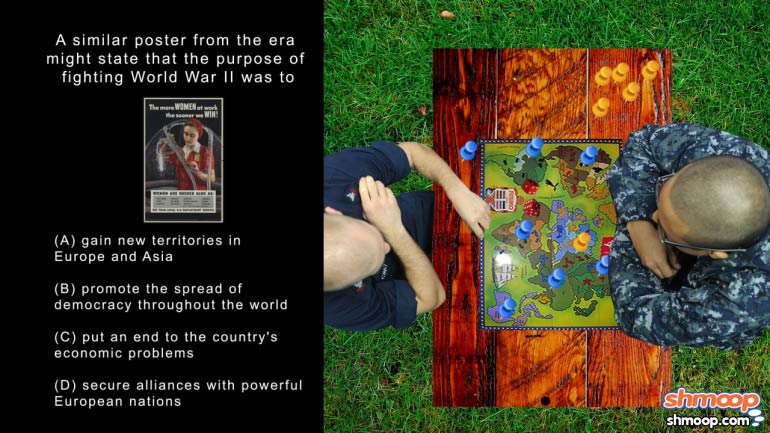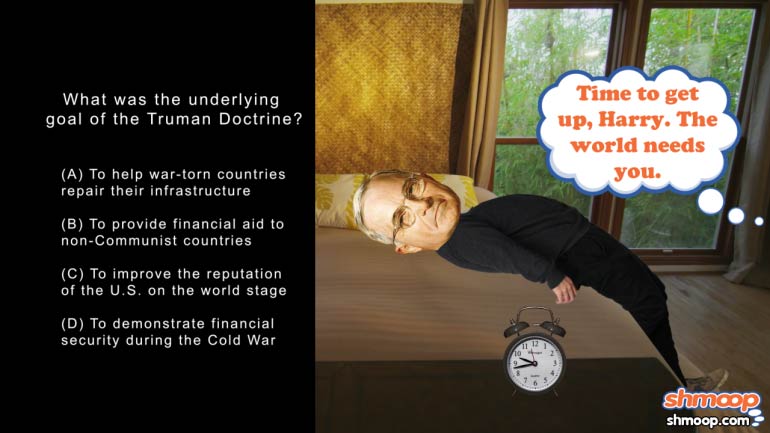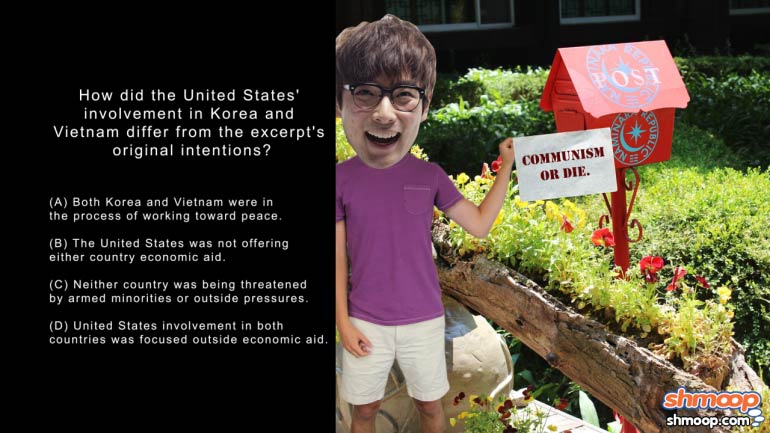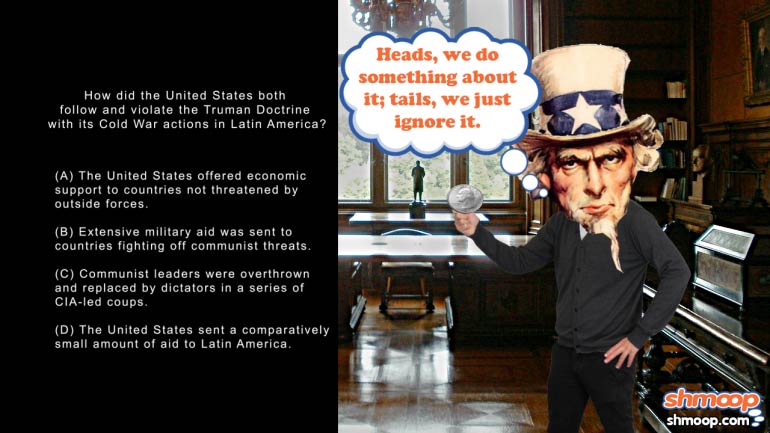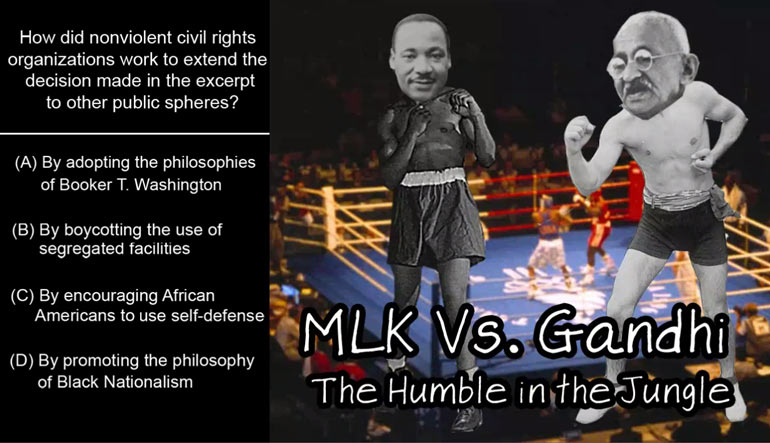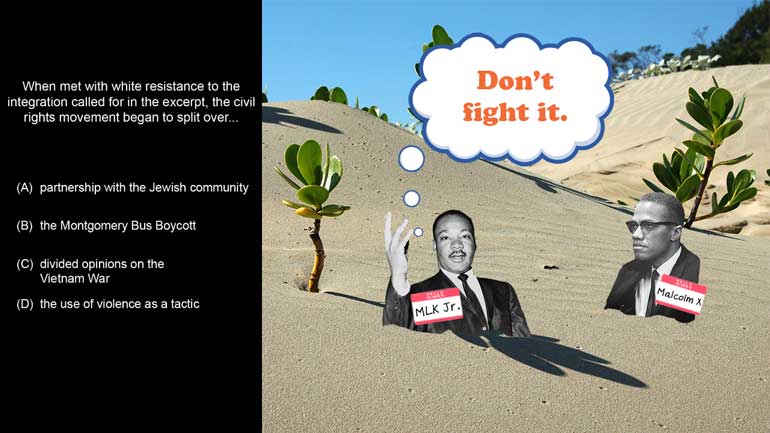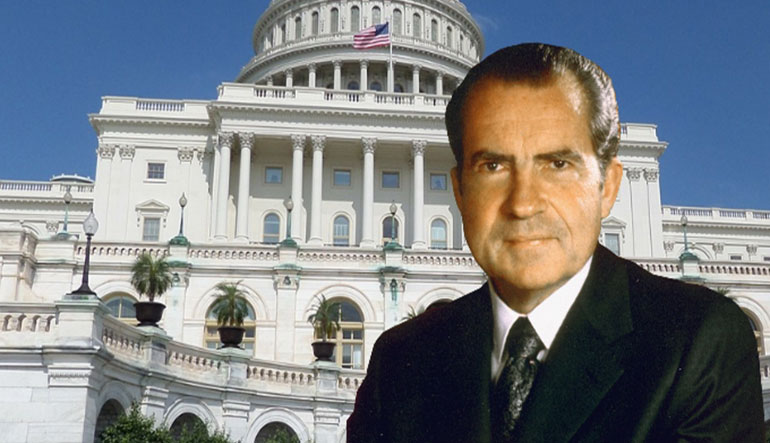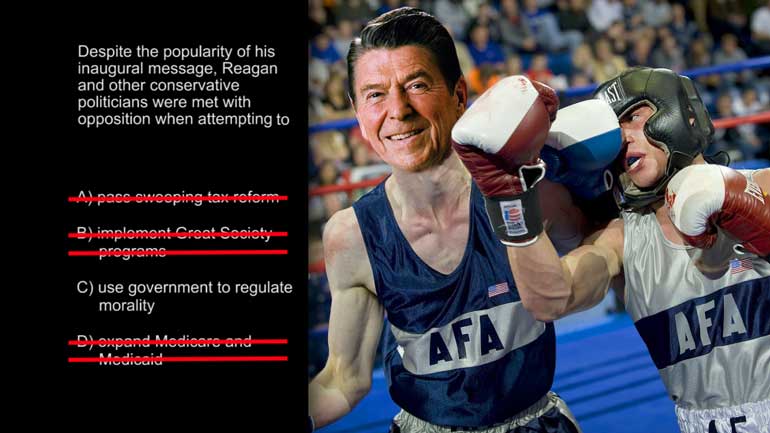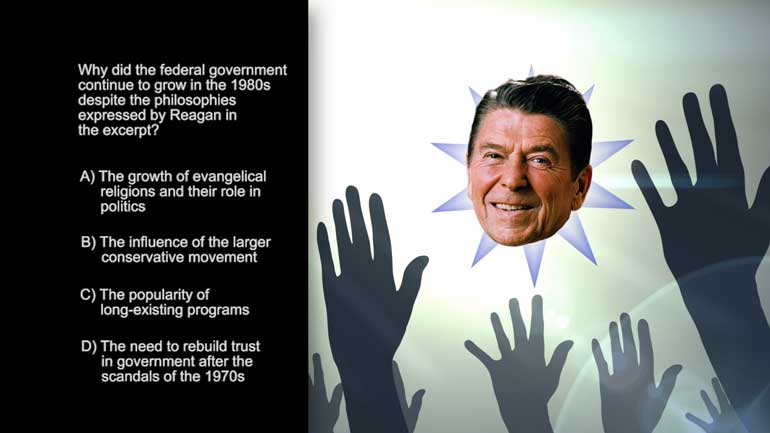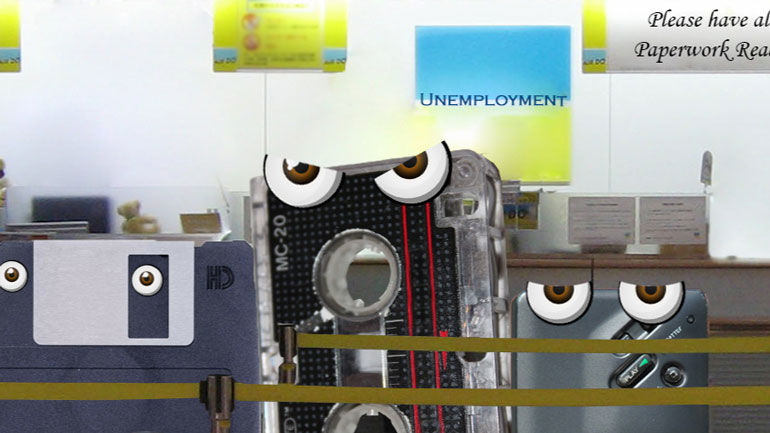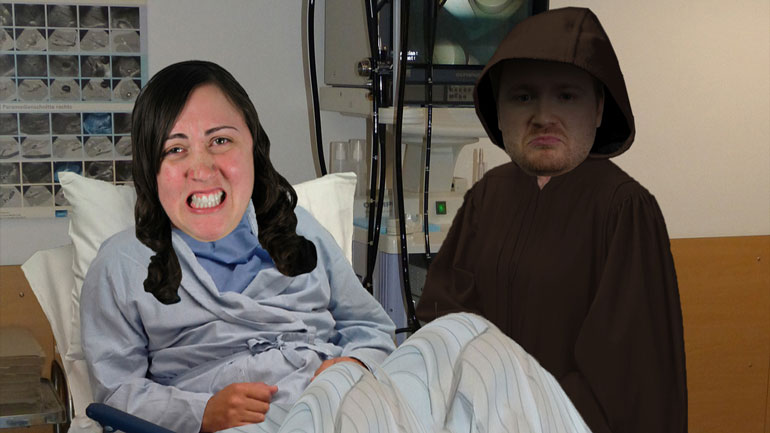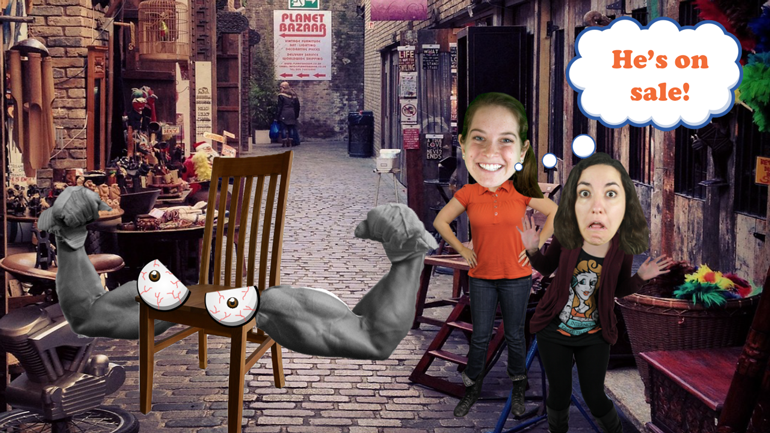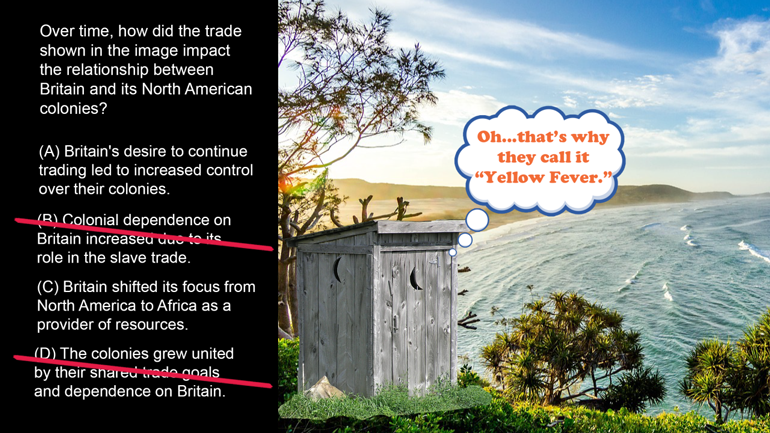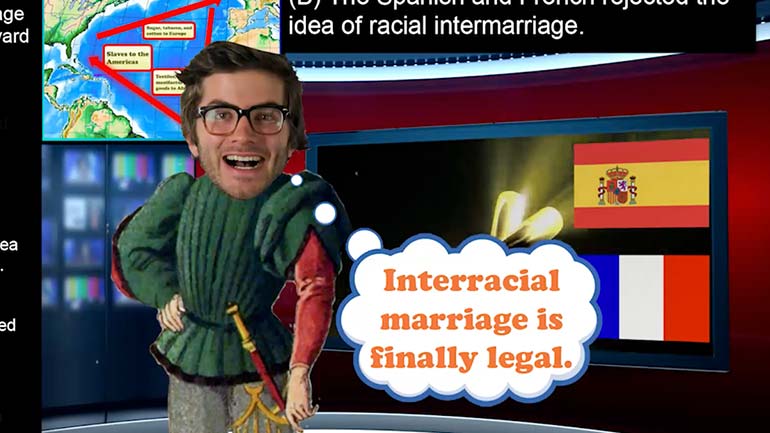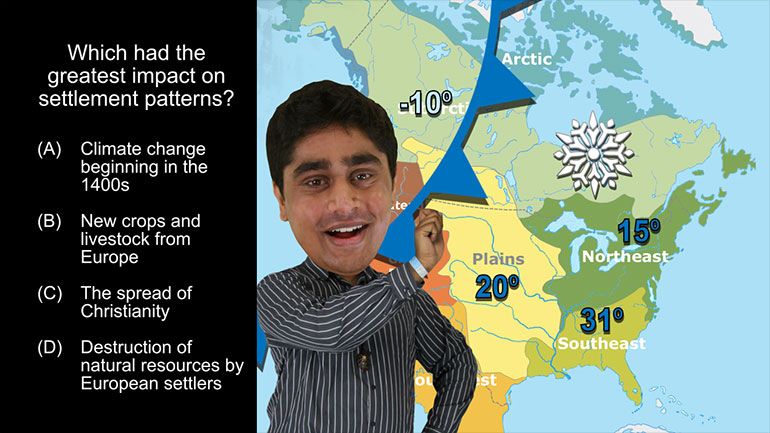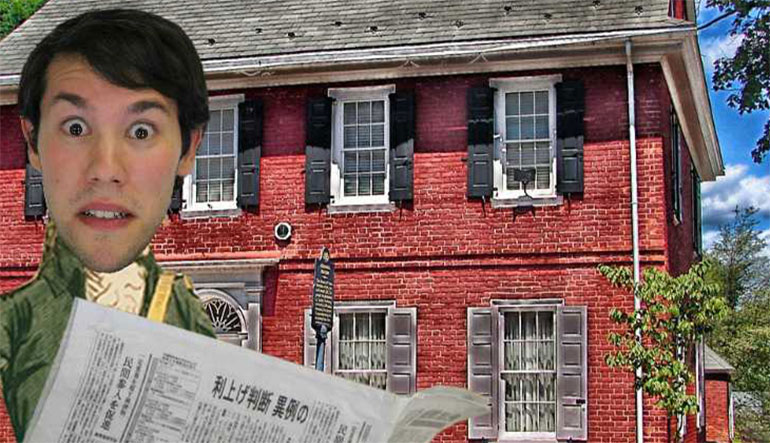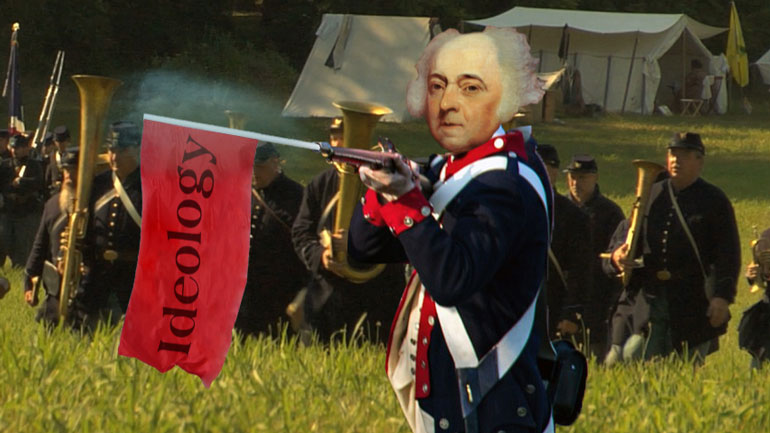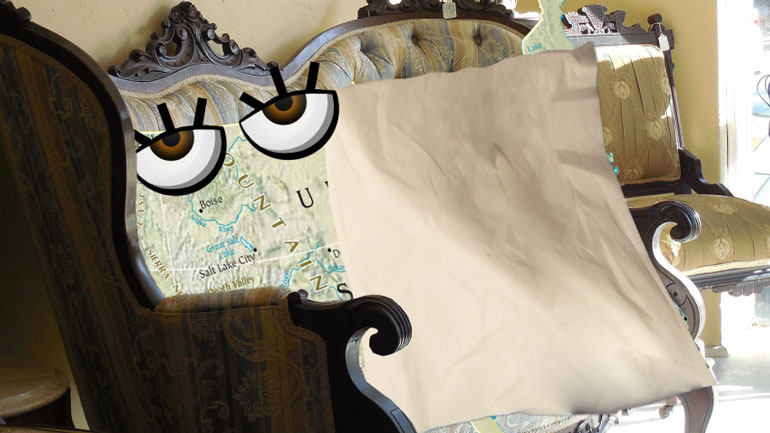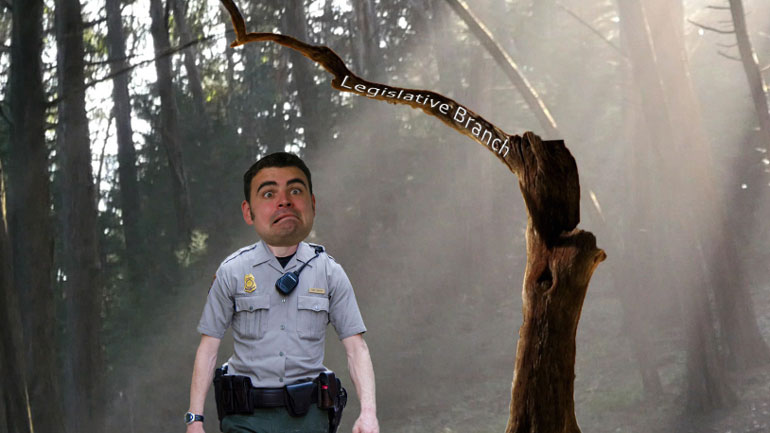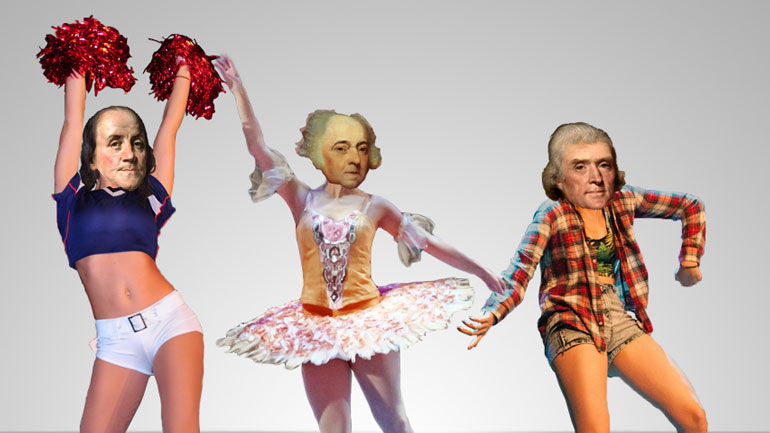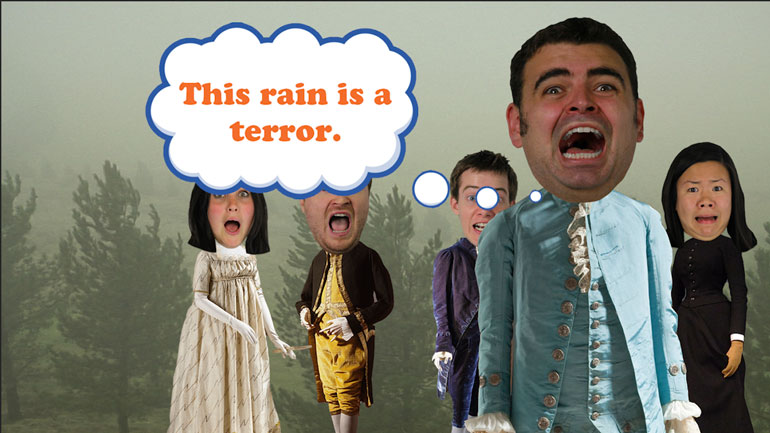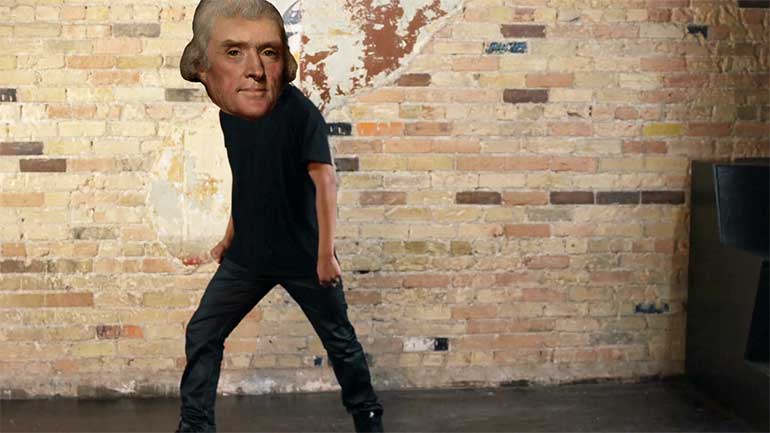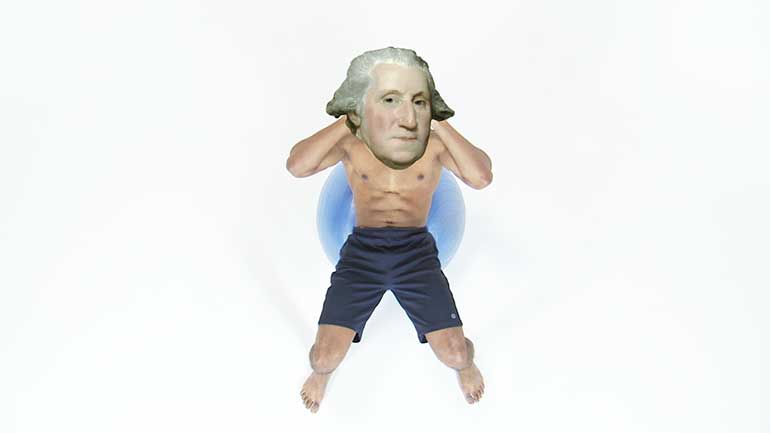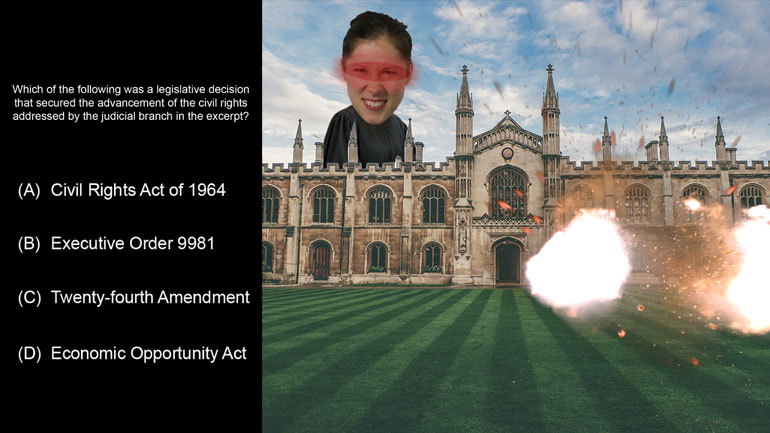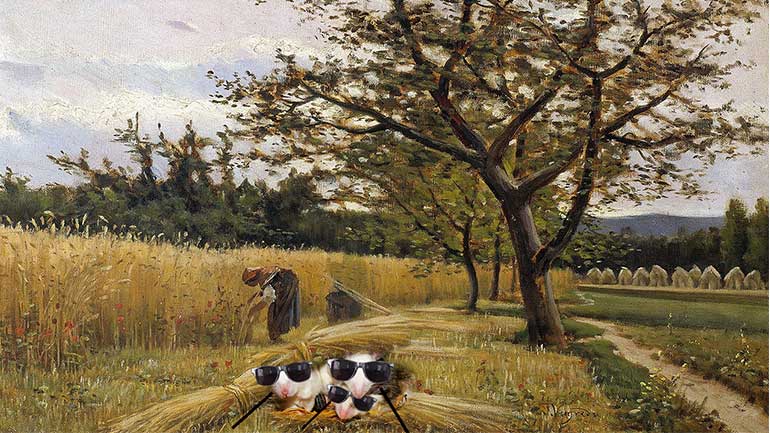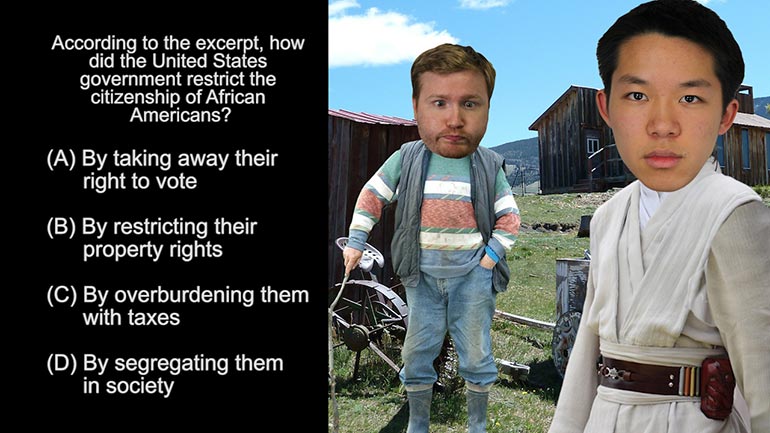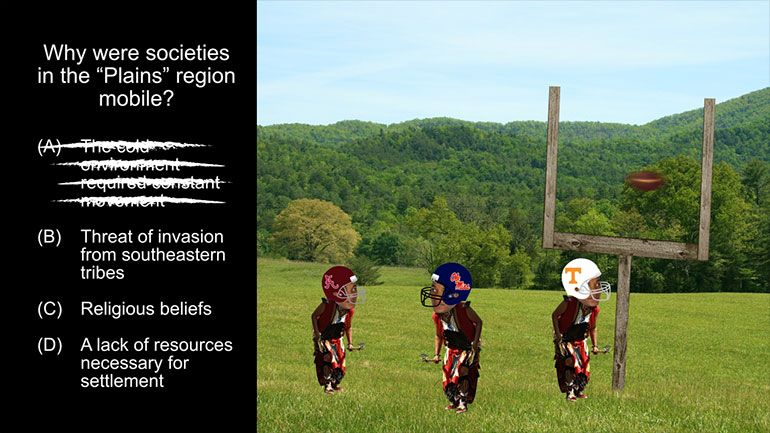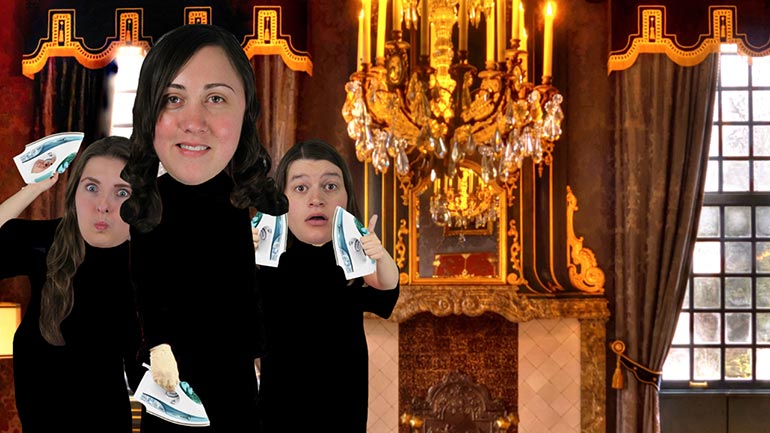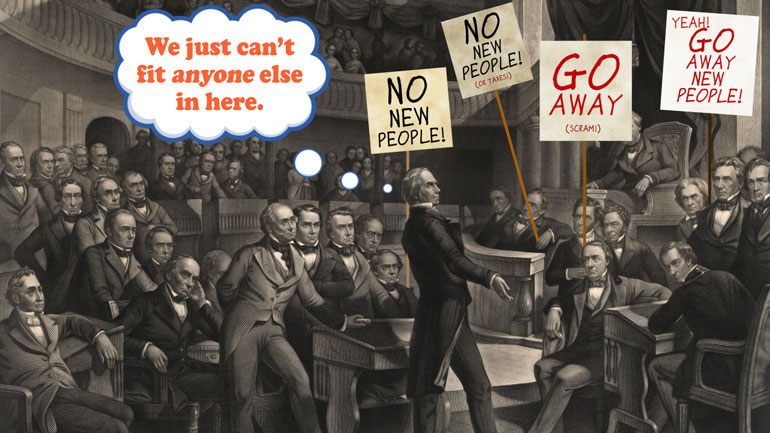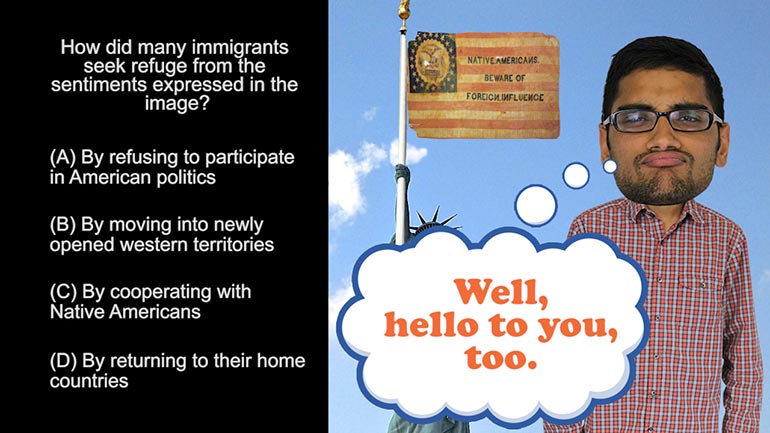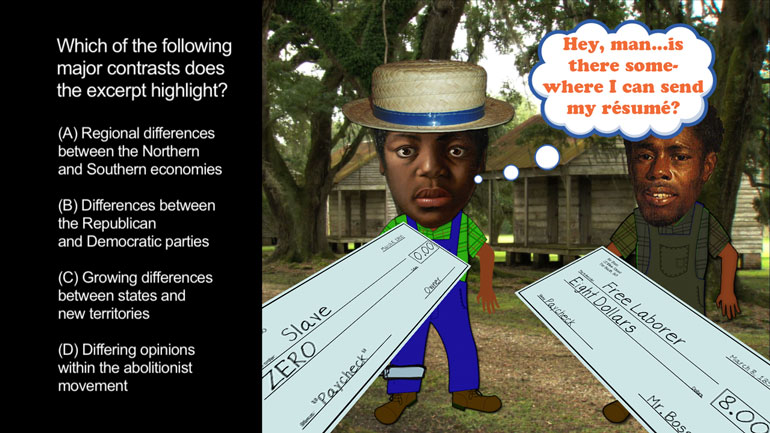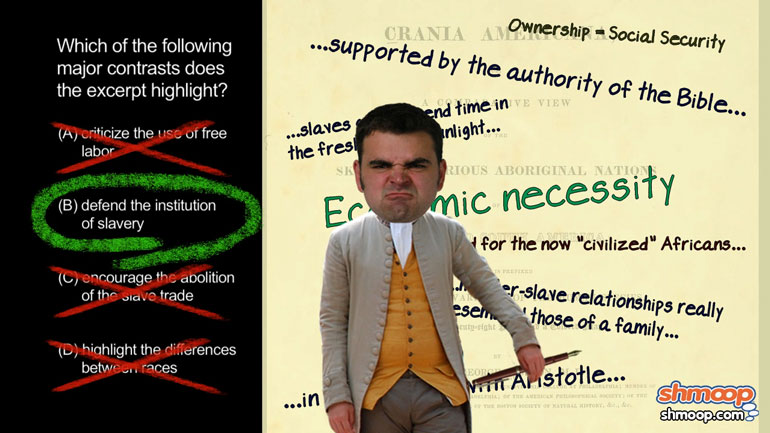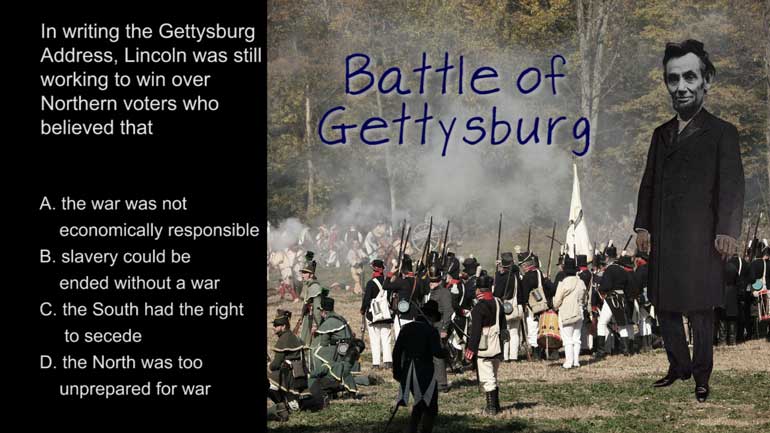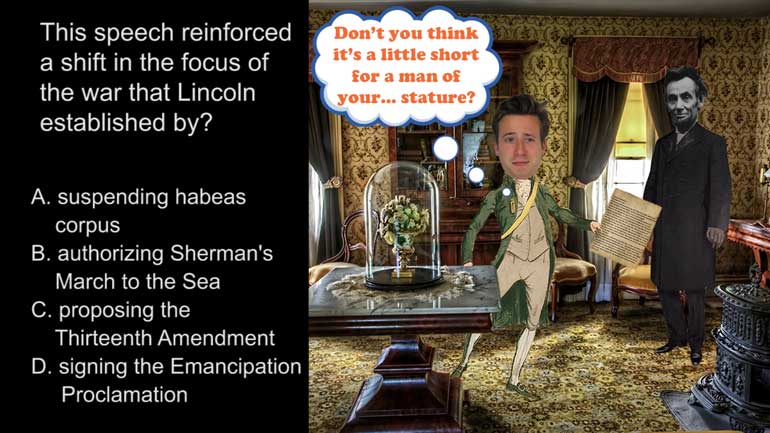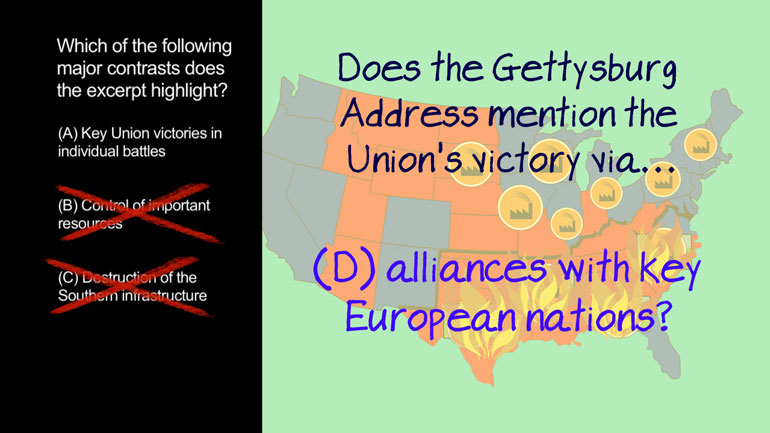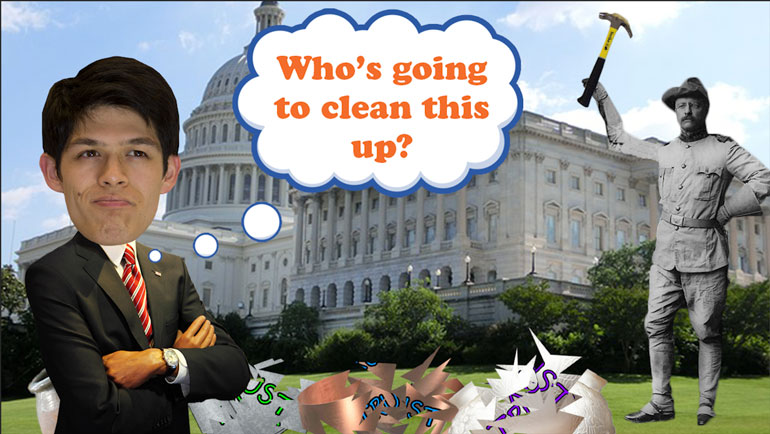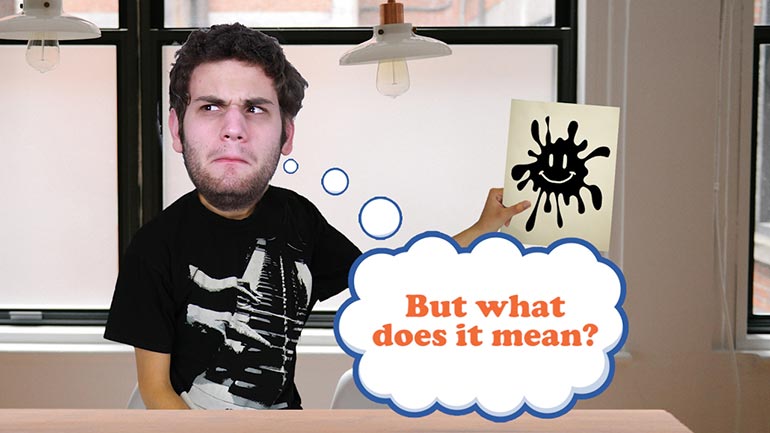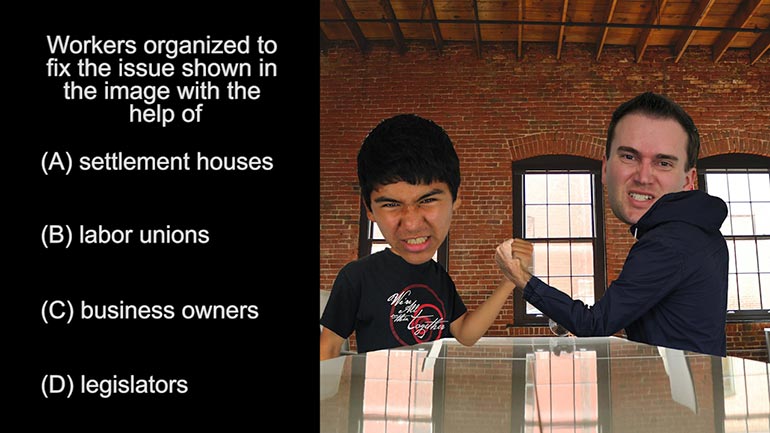ShmoopTube
Where Monty Python meets your 10th grade teacher.
Search Thousands of Shmoop Videos
Exam Videos 129 videos
AP U.S. History Diagnostic 1. Relationships like the one shown in the image resulted in the development of...what?
AP U.S. History Diagnostic 15. How did groups like the ones represented by the image influence industry in America?
AP U.S. History Diagnostic 10. What led to the splintering of the political parties shown in the image?
AP U.S. History Exam 1.36 174 Views
Share It!
Description:
AP U.S. History Exam 1.36. During World War I, the Supreme Court ruled that the Espionage Act did not violate First Amendment rights if the speech of the convicted...what?
Transcript
- 00:00
[ musical flourish ]
- 00:03
And here's your Shmoop du jour, brought to you by the Espionage Act,
- 00:07
a common defense mechanism for former spies.
- 00:10
Yeah. That act.
- 00:12
All right, check out this excerpt.
Full Transcript
- 00:13
[ mumbles ]
- 00:17
[ mumbling continues ]
- 00:20
All right, and the question:
- 00:22
During World War I, the Supreme Court ruled
- 00:25
that the Espionage Act did not violate
- 00:28
First Amendment rights if the speech of the convicted...
- 00:32
what?
- 00:33
And here are your potential answers.
- 00:34
[ mumbles ]
- 00:38
[ mumbling continues ]
- 00:41
Government suspension of civil liberties during wartime was a
- 00:44
common practice by the early 1900s.
- 00:47
But the Espionage Act
- 00:49
packed a particular punch with its
- 00:51
punishment "by death
- 00:53
or by imprisonment for not more than thirty years."
- 00:57
All right, well, let's see how the Supreme Court justified
- 00:59
the cost of having some speech that was no longer free.
- 01:03
Well, did the Supreme Court rule that the Espionage Act
- 01:07
didn't violate the First Amendment
- 01:09
if the speech of the convicted A -
- 01:12
involved a "willful disclosure of information"?
- 01:15
Well, geez, that's pretty broad, since you can willfully disclose
- 01:18
anything from an insignificant detail to a widely
- 01:21
guarded state secret. So it's not A.
- 01:24
Did the Supreme Court say this kind of speech wasn't
- 01:26
protected under the First Amendment if it C -
- 01:29
was deemed "inflammatory or injurious"?
- 01:32
Well, actually, the First Amendment excludes inflammatory
- 01:36
or injurious words from protection as free speech.
- 01:39
But that kind of talk wasn't under discussion for this case.
- 01:42
Did the Supreme Court justify this censure in
- 01:45
cases where the speech D - was considered
- 01:48
"false or scandalous" against the United States?
- 01:51
Hmm, well false and scandalous statements were made
- 01:54
criminal under the Alien and Sedition Acts,
- 01:57
which John Adams signed in 1798 during
- 01:59
the aftermath of the French Revolution.
- 02:01
So we're about 120 years too late for that one.
- 02:04
Which means the Supreme Court was totally on board with
- 02:07
the Espionage Act when the speech of the convicted
- 02:10
B - presented a "clear and present danger" to the United States.
- 02:14
In Schenk versus United States,
- 02:16
the case involving the Espionage Act,
- 02:19
the Supreme Court created a famous litmus test
- 02:22
that said the First Amendment did not protect speech
- 02:26
that created a "clear and present danger" to the United States.
- 02:29
So B is the correct answer.
- 02:31
Though its intentions were noble,
- 02:33
this so-called litmus test justified
- 02:35
the dubious arrests of many leftists
- 02:38
protesting the draft. So for those guys,
- 02:40
the clear and present danger was simply
- 02:43
avoiding a war they didn't wanna fight.
- 02:49
[ wind blows ]
Related Videos
Ever heard of a "living document"? They eat and breathe just like the rest of us! They even walk around on their own two legs. Okay, fine—maybe t...
If the Puritans had gotten their way, religion would play a much larger role in lawmaking these days. Want to know more? Watch the video for all th...
What happened between the creation of the Articles of Confederation and the ratification of the current U.S. Constitution? This video analyzes the...
The Modernists thought the world had a lot of problems, and they were intent on fixing them—or at least talking about fixing them. Unfortunately,...
This video explains Federalism and the quest for a fair balance between state and national power. It covers the progression and compromises of Fede...

